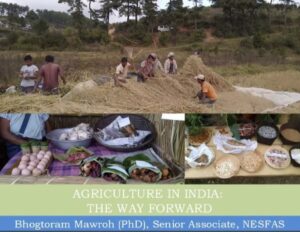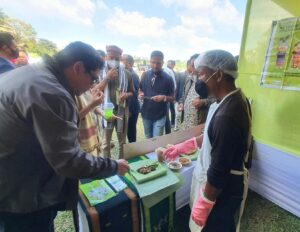NESFAS in collaboration with MS Swaminathan Research Foundation (MSSRF), the Global Forum on Agricultural Research and Innovation (GFAR), and Asian Farmers’ Association for Sustainable Rural Development (AFA) organized a two day Stakeholder consultation workshop on “Co-design of the Collective Action on Forgotten Foods in India” on the 8th & 9th February, 2023 in Shillong.
The two day event saw the participation of representatives from various organisations; Watershed Support Services and Activities Network (WASSAN), Hyderabad, Self Employed Women’s Association (SEWA), Ahmedabad, MS Swaminathan Research Foundation (MSSRF) Chennai, A Dialogue, Meghalaya Biodiversity Board, Grassroots Shillong, Bio Resources Development Centre (BRDC), Martin Luther Christian University (MLCU), Krishi Vigyan Kendra (KVK) Ri–Bhoi, NESFAS, Social Service Centre (SSC) and Society for Urban and Rural Empowerment (SURE). Community members from 10 villages of East, West and Eastern West Khasi Hills, and Ri-Bhoi also took part as the key stakeholders in this programme.
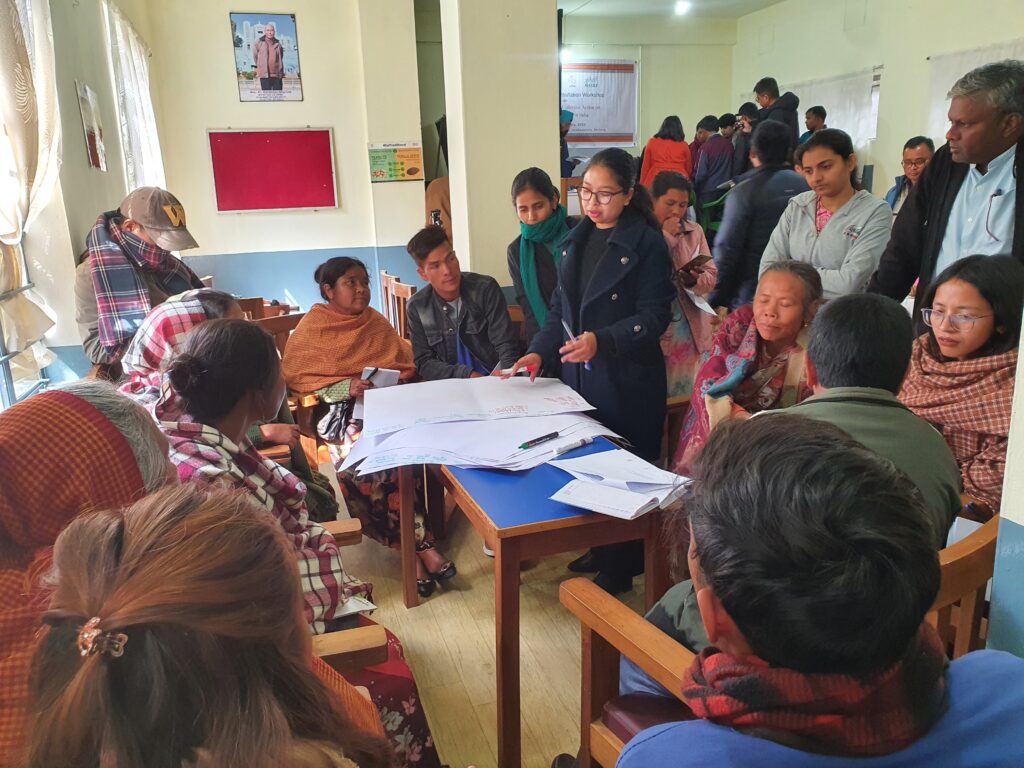
The objective of this workshop was to bring together various stakeholders from like minded organizations for a local level consultation along with farmers from partner communities. The local-level consultations were held in four different locations in India- Odisha, Gujarat, Tamil Nadu and closed in Meghalaya.
On the first day, the workshop started off with a brief remarks on the initiative ‘Collective Action on Forgotten Foods’ by Dr. E.D Israel Oliver King, Director of Biodiversity at MSSRF, Chennai, who was also the key facilitator at the programme, followed by an introductory session by the participants of the workshop.
A breakout session was conducted which led to the formation of two groups for free listing of the agrobiodiversity found in the region of the participating farmers, and prioritising on food plants which are under threat of extiunction, or neglected. This exercise brought to light the numerous food plants that are traditional to the communities which are facing a big threat of various spheres- production, consumption, seed saving, resilience, economic, etc,. Some of the food plants include- beans like toh ktung wild edibles like jaum and jasim, millet, rice varieties such kba burmah, kba thangmaw and kba lynter, local taro species such as shriew rit, diaschorea, banana varieties such as kait syiem and kait mon and other aquatic species such as khasaw, dohthli, dohjai etc.
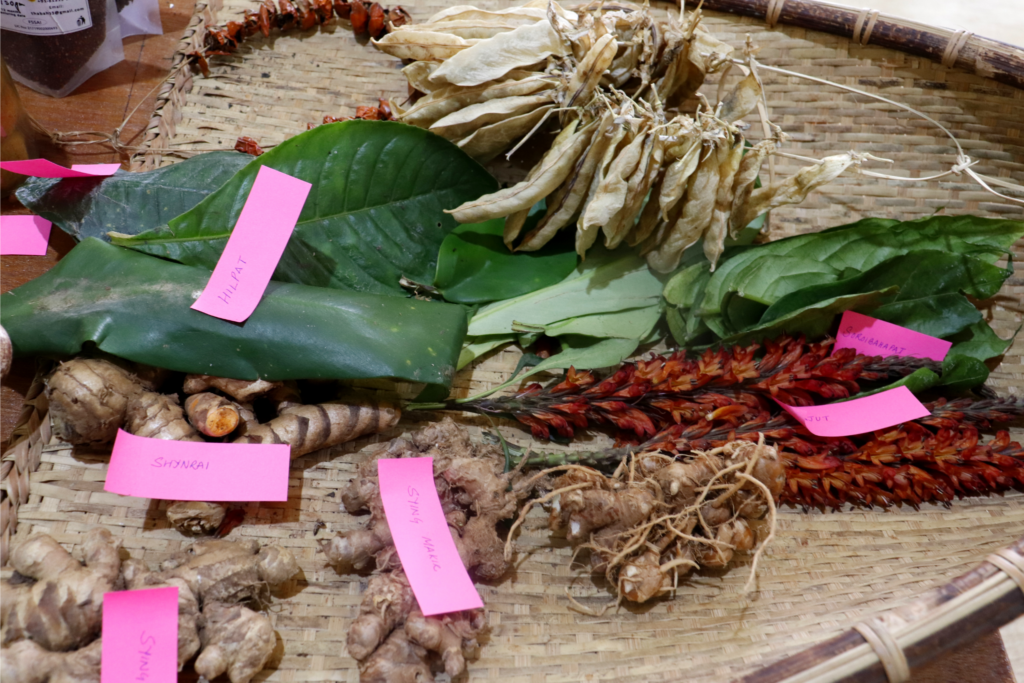
The second focused on reflection of the exercises that were presented by the workshop facilitators, and this was followed by presentations from different institutions/ organizations on the existing research, development, pratices, initiatives, campaigns, communications and marketing work that are being done on forgotten foods.
“This programme is part of a global effort to build a collective action in which women, men, farmers, and communities come together to talk about the forgotten crops.” shared Dr. E.D Israel Oliver King. He also added that this is a platform where people can come together to find ways to save Neglected and Underuotilised Species (NUS) and help farmers deal with problems.
Mr. Nitin Sisodia from A Dialogue said, “This workshop is mainly focused on finding the forgotten foods which the real knowledge holders are the farmers and this needs to be revived and captured. I’m also amazed by the rich biodiversity in this region and I think there are a lot of possibilities for innovation and reviving many of the forgotten foods that exist in this area.”
Dr. M.L.S Rao, Programme Associate at WASSAN, shared, “When it comes to people’s nutritional security, these are the forgotten foods that we often overlook. These crops on the other hand must be highlighted as well as more innovative trials and research must be conducted in order to standardize them by combining government support and bringing them into mainstream agriculture.”
Dr. Sophie Majaw, Junior scientist, BRDC, Shillong, expressed that it has been a good experience to be able to participate in this programme. It is a reminder of the traditional foods that we perhaps have begun to forget or ignore. This also served as a reminder that we should uphold our culture and traditional food systems so that they shall not be forgotten and our future generations can also partake in it.
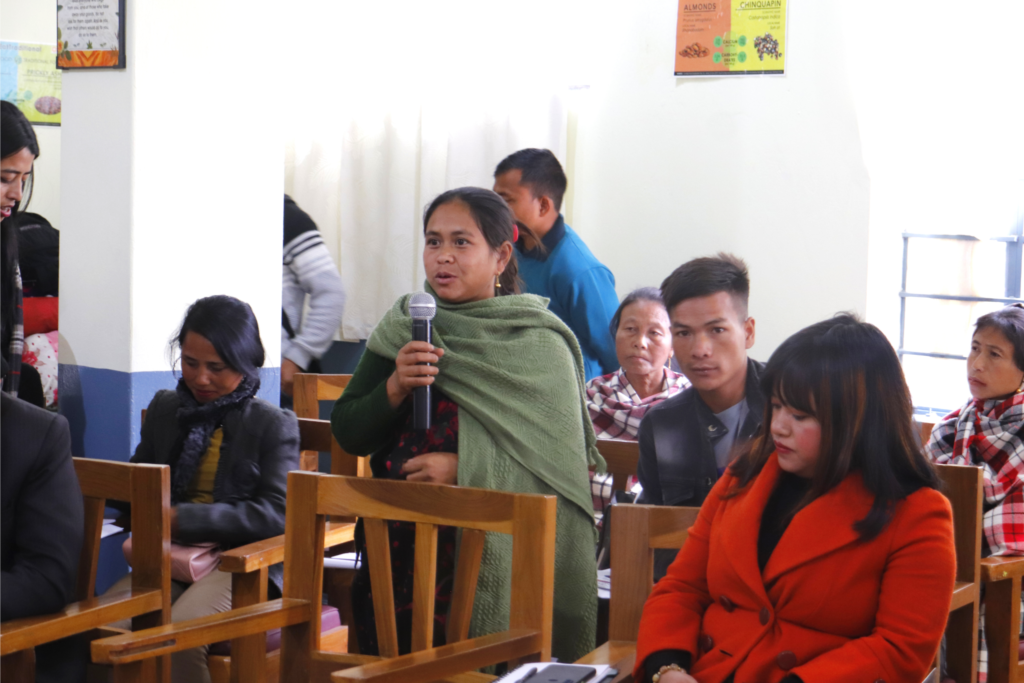
Kong Bisikrin Marwein, custodian farmer, Mawlum Mawjahksew, remarked, “I feel happy and grateful to receive a lot of useful information in this programme, not just from fellow farmers but also from the other organisations across Meghalaya and India. I am glad to have gathered ideas on how to improve traditional farming and to include Neglected and Underutilised Species (NUS) in our local food systems.”
Kong Mayfreen Ryntathiang, President, Grassroot Shillong, said, “I think it is a very important discussion that we still need to continue to embark (on) and discuss but it shouldn’t just be ending in a discussion or a workshop but it should be a ‘working work’ of what we do every day starting from home and the society as a whole.”
Bah Pius Ranee, Executive Director, NESFAS, in his concluding remark shared that it was a successful workshop and we have seen so much progress within a short time span. There is a need to build our networks in order to achieve this objective. Hence there is a need to expand our works and with the concept of Neglected and Underutilised Species (NUS), we have come to the right direction.”


